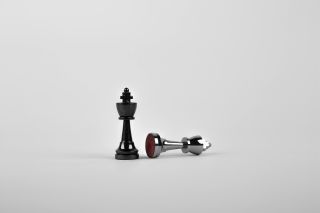
The achieving peers
Source: Pexels/Jill Wellington
When others outperform us, should we feel threatened or inspired? Should we fear or respect those who are more capable, more skilled, or more successful than us? Should we resent or emulate their achievement? The different choices can lead to constructive or destructive reactions and actions, whether it is when individuals manage their day-to-day affairs or when institutions and governments engage with their competitors.
The Kindergarteners’ Stories
Some years ago, Jin Li, an educational psychologist and professor of human development at Brown University, and I did a study to see how kindergarteners in the U.S. and China tell stories about achieving peers, namely, peers who perform better than others. We asked children to complete story stems like this one:
One day, in art class, the teacher praises this child because their painting is the best in the class. Tell me what happens next.
Children then told the stories as they believed how things would unfold. Being at the same age and grade, U.S. and Chinese children told equally elaborate and coherent stories. Yet the content of their stories showed distinct differences.
A dominant theme in the Chinese children’s stories was the respect for the achieving peer and the desire to emulate him or her. For example, “The kids are cheering for him” and “The teacher said we should learn from her.” On the other hand, many Chinese children expressed concerns that the achiever might become arrogant or conceited, and that their performance would suffer as a result. For example, “She is too proud of herself; she begins to paint bad pictures.”
In contrast, a dominant theme in the U.S. children’s stories was negative reactions toward the achieving peer. For example, “The other kids are jealous of her,” “They made scary things and put them in his desk,” and “They said to her ‘we don’t want to play with you anymore.’” In addition, U.S. children frequently described negative feelings of the achiever because of others’ negative reactions. For example, “She is sad that they didn’t like her,” and “He couldn’t sleep at night and got up and drew each boy a picture so they liked him again the next day.”
The stories told by the U.S. and Chinese kindergarteners do not just reflect the children’s personal perceptions or experiences. They reflect different cultural narratives children are exposed to growing up, through watching cartoons, reading books, chatting with their parents, and school learning.
Cultural Narratives About the Achieving Peers

Emulation and respect
Source: Pexels/Nataliya Voitkevich
In American culture, the “self,” either of individuals or organizations, is defined by dispositional attributes, qualities, abilities, and so on. These are invariant characteristics that do not change due to, for example, one’s effort or will. They are the basis for one’s thoughts, behaviors, and levels of achievement. Thus, while the achievement of others reflects their high ability, it becomes a mirror to reveal one’s own lack of ability. This can be a blow to self-esteem and further result in resentment and animosity toward the achieving peers.
Indeed, research in the West has shown that although people, including children, can recognize others’ achievements, the recognition and the associated upward social comparison often result in the assessment of one’s own lower standing. This, in turn, threatens one’s self-esteem. The achievers, on the other hand, beyond joy and pride, may experience pain, anxiety, and even fear as they anticipate potential negative reactions from their peers.
In contrast, there is a great emphasis in Chinese culture on the flexibility or malleability of the self. The attributes, qualities, and abilities of the self, although they may reflect one’s natural inclinations, are believed to be changeable given the right circumstances or efforts. The achievement of others and the lack of achievement of oneself thus do not necessarily reflect differences in inherent qualities or skills. This leaves little room for self-pity or resentment of the achieving peers.
Furthermore, self-improvement is highly valued in Chinese culture, and learning from others is an important way to realize that. As Confucius noted, “When three are walking together, I am sure to find teachers among them. I will select their good qualities and follow them, their bad qualities and avoid them.” To respect and emulate those who achieve more is a prominent part of the cultural narrative. Achievers, on the other hand, are expected to remain humble. “Modesty helps one go forward; conceit makes one lag behind.” This is a proverb that every child learns by heart before formal learning starts.

win or lose
Source: Pexels/Sebastian
Accordingly, it is not surprising that test results are often publicly posted in Chinese classrooms to award those who do well and encourage more efforts among those who do poorly. As a pedagogical strategy, students are frequently invited to demonstrate their errors (e.g., in solving math problems) to the class so that others do not make the same mistakes. It’s hard to imagine such practices in American classrooms, given their potential to threaten students’ self-esteem.
Implications for Individuals and Society
As individuals, organizations, and society as a whole, we routinely engage in social comparisons with our peers. How we perceive those who achieve better than us can influence how we view ourselves, how we interact with our achieving peers, and our motivations and actions to excel.
Cultural narratives about achievement and achieving peers condition our perceptions and can, in turn, have important consequences for our choices between threat versus inspiration, fear versus respect, resentment versus emulation, and confrontation versus collaboration.

